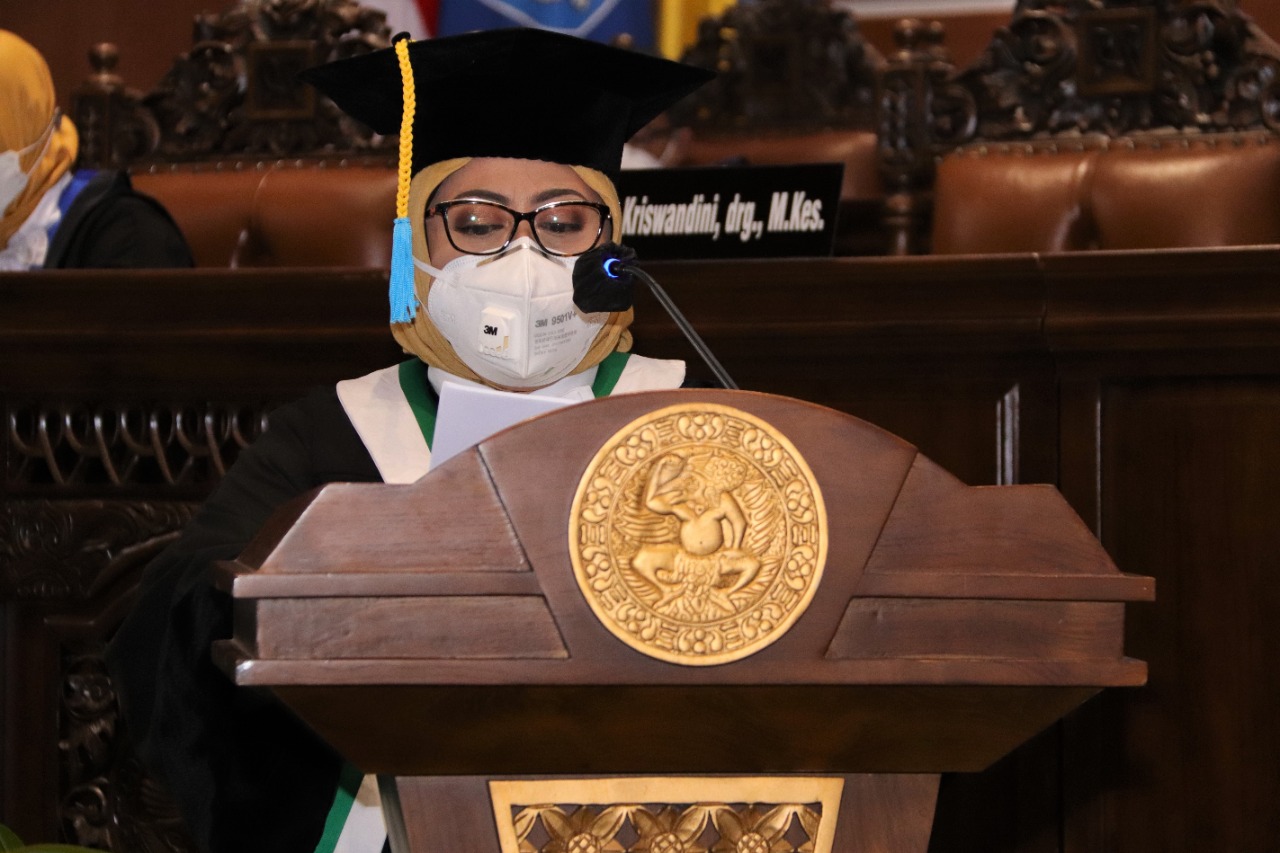UNAIR NEWS – Universitas Airlangga (UNAIR) has inaugurated another professor from the Faculty of Dental Medicine (FKG). On Wednesday, December 8, 2021, Prof. Indah Listiana Kriswandini, drg., M.Kes. was officially inaugurated as Professor of the Faculty of Dental Medicine (FKG) in the field of Oral Biology.
The woman born in Nganjuk on October 30, 1963, has become the 17th active FKG Professor, the 530th UNAIR Professor since its establishment, and the 238th Professor of UNAIR PTN-BH. Prof. Indah herself has served as an educator of FKG UNAIR for 32 years since 1989.
In the inauguration, Prof. Indah delivered an oration on her research entitled Quorum Sensing Functions in Biofilms in the Spread of Chronic Infections in Dental Medicine. She highlighted chronic infections that are still a problem in medicine, especially dental medicine.
“Based on a survey conducted in America and Europe, the presence of biofilms can inhibit the healing of chronic infectious diseases by up to 90 percent,” said the lecturer with 25 international publications.
Prof. Indah said that dental infections actually result from normal flora which could be useful and help the needs of the human body. Unfortunately, this condition can turn dangerous if the flora grows quickly and even produces toxins or acids that can damage soft and hard tissues.
Therefore, Prof. Indah examined a group of microflora species covered with Extra Polysaccharides (EPS) called biofilms or Acquired Pellicle. The bacteria that make up the biofilm will get protection and trigger a genetic transfer for antibiotic resistance.
“This biofilm has double functions. Under normal conditions, it can be profitable. However, if the balance is disturbed, the biofilm will actually trigger the microbes in it to release virulence factors that cause infection,” said the 2004 UNAIR Doctor of Medicine graduate.
Prof. Indah found that bacteria in the biofilm environment would be tolerant and resistant to the presence of antibiotics. Thus, antibiotics cannot kill microbes in the biofilm. Therefore, Prof. Indah observed the communication among microbial cells (Quorum Sensing) to show population density, microbial virulence, biofilms producibility, plasmid transferability, and morphological differentiation.
The research found that biofilms in Dental Medicine can also cause chronic infections. “The biofilm protects the microbes in it from changes in pH, osmolarity, nutrient scarcity, and mechanical forces to block access to the biofilm community from antibiotics and human immunity. Biofilms also increase microbial resistance, making them not only tolerant to difficult conditions but also multi-drug resistance to antibiotics,” she explained at the end of the speech.
Wrapped in emotion, Prof. Indah also expressed her gratitude to her parents, family, UNAIR academic community, and everyone who provided support, time, and assistance in her life journey. She is also committed to carrying out the moral responsibility of a professor through works and thoughts that are beneficial to institutions, society, nation, and state. (*)
Author: Intang Arifia
Editor: Khefti Al Mawalia





